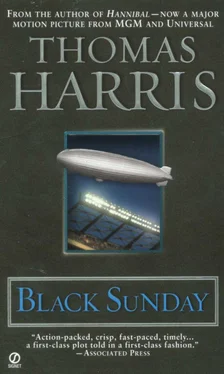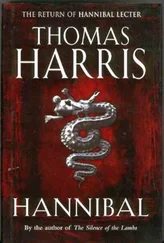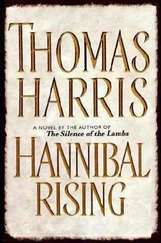He kissed her for minutes, his hand warm beneath her hair.
A couple came down the path from the thickets above, bashful in the light, brushing leaves from their clothing. They stumbled over the feet of Kabakov and Rachel sitting beside the path, and passed on, unnoticed.
“David, I am shook,” Rachel said at last, shredding a blade of grass. “I didn’t mean for this to get started, you know?”
“Shook?”
“Disturbed, upset. Slang.”
“Well, I—” Kabakov tried to think of a nice phrase, then snorted at himself. He liked her. Talk was nothing. Damn talking. He talked. “Wet drawers and vague regrets are fifth-form nonsense. Come with me to Haifa. I can get a week’s leave. I want you to come with me. We’ll talk about your responsibilities next week.”
“Next week. Next week I might not have any sense at all. I have obligations in New York. What would be different about it next week?”
“Knocking the slats out of a bed and lying in the sun and looking at each other would make it different.”
She turned away quickly.
“Don’t get pissed off, either.”
“I’m not pissed off,” she said.
“Stop saying words like pissed off, then. It sounds like you are.” He was smiling. She smiled too. An awkward silence.
“Will you come back?” Kabakov said.
“Not soon. I have my residency to finish. Not unless the war breaks out again. But it hasn’t stopped for you, not even for a little while, has it, David? It’s never over for you.”
He said nothing.
“It’s funny, David. Women are supposed to have busy little flexible lives, men have Their Duty. What I do is real and valuable and important. And if I say it’s my duty, because I want it to be my duty, then that is just as real as your uniform. We won’t ‘talk about it next week.’ ”
“Fine,” Kabakov said. “Go do your duty.”
“Don’t get pissed off, either.”
“I’m not pissed off.”
“Hey, David, thank you for asking me. If I could, I would ask you. To go to Haifa. Or somewhere. And knock the slats out of a bed.” A pause, then quickly, “Goodbye, Major David Kabakov. I’ll remember you.”
And then she was running down the trail. She did not realize she was crying until her jeep picked up speed and the wind spread the tears in cold patches on her cheeks. Tears the wind dried, seven years ago, in Israel.
A nurse came into Kabakov’s room, interrupting his thoughts, and the hospital walls closed in on him again. She carried a pill in a paper cup. “I’m going off now, Mr. Kabov,” the nurse said. “I’ll see you tomorrow afternoon.” Kabakov looked at his watch. Moshevsky should have called from the lodge by now, it was nearly midnight.
From a car parked across the street, Dahlia Iyad watched a group of late-shift nurses filing through the front entrance of the hospital. She, too, made a note of the time. Then she drove away.
AS KABAKOV TOOK HIS PILL, Moshevsky was standing just inside the doorway of the Boom-Boom Room, the nightclub at Mt. Murray Lodge. He was glowering at the crowd. It had been a tiresome three-hour drive through the runty Pocono Mountains in a light snow, and he was disgruntled. As he had expected, the registration desk did not list a Rachel Bauman. He had not spotted her in the dinner crowd downstairs, though his surveillance had on three occasions attracted the head-waiter, who uneasily offered him a table. The band in the Boom-Boom Room was loud, but not bad, and the “activities director” was master of ceremonies. A moving spotlight slid over the tables, pausing on each. Often the patrons waved when the light touched them.
Rachel Bauman, sitting with her current fiancé and a couple they had met at the lodge, did not wave in the spotlight. She thought this was an ugly lodge with no view. She thought the Poconos were stupid little mountains. She thought the crowd was frumpy. Numerous new art-carved engagement and wedding rings made the room flash like a muddy constellation. This depressed her because she was reminded that she had agreed, sort of, to marry the personable, dull young lawyer at her side. He was not the type to interfere with her life.
Furthermore, their room was vulgar, cost sixty dollars a day, and had hairs in the bathtub. The furniture was Brooklyn Oriental, the bathtub hairs unmistakably pubic. Her fiancé, sort of, sported an ascot with his dressing gown and wore his watch to bed. Holy God, look at me, Rachel was thinking. I have little enameled rings on my fingers.
Moshevsky appeared beside the table like a whale peering down into a rowboat. He had gone over what he would say. He would open with humor.
“Dr. Bauman, I always see you making a party. You remember me, Moshevsky, Israel 1967—now could we have some words?”
“I beg your pardon?”
That was all Moshevsky had been prepared to say for openers. He hesitated, then rallied, bending over as though showing his face to a short dermatologist. “Robert Moshevsky, Israel 1967. With Major Kabakov? At the hospital and the party?”
“Of course! Sergeant Moshevsky. I didn’t recognize you in your civvies.”
Moshevsky was nonplussed. He thought she had said “skivvies; a term he understood. He looked down at himself quickly. No problem there. Rachel’s boyfriend and the other couple were staring at him now.
“Marc Taubman, this is Robert Moshevsky, a good friend of mine,” Rachel was saying to her escort. “Please sit down, Sergeant.”
“Yes, do,” Taubman said dubiously.
“What in the world—” Rachel’s face changed suddenly. “Is David all right?”
“Almost.” Enough of this social stuff. His instructions did not include sitting around and talking. What would Kabakov say? He bent close to her ear. “I have to speak with you privately, please,” he rumbled. “Most urgent.”
“Would you excuse us?” She put her hand on Taubman’s shoulder as he started to rise. “I’ll only be a moment, Marc. It’s all right.”
In five minutes Rachel returned to the table to summon Marc Taubman outside. Ten minutes later he was sitting alone in the bar with his chin in his hand. Rachel and Moshevsky were speeding back to New York, snow streaking level into the windshield like tracer fire.
To the south, the snow had changed to sleet that rattled off the roof and windshield of Lander’s stationwagon as Dahlia Iyad drove down the Garden State Parkway. The parkway had been sanded, but Route 70 was slick as she turned west toward Lakehurst. It was three a.m. when she reached Lander’s house and ran inside. Lander was pouring a cup of coffee. She put the two-star edition of the Daily News on the kitchen counter and opened it to the centerfold picture section. The face of the man on the stretcher was clear. It was Kabakov all right. Cold drops of water trickled onto her scalp as the sleet melted in her hair.
“So it’s Kabakov? So what?” Lander said.
“So what indeed,” Fasil said, coming out of his room. “He had a chance to talk to Muzi, he may have your description. He must have found Muzi through the ship, and at the ship he would have gotten my description also. He may not have fixed on my identity yet, but he knows of me. It will occur to him. He has seen Dahlia. He has to go.”
Lander set his cup down with a clatter. “Don’t shit me, Fasil. If the authorities knew anything they’d have been here by now. You just want to kill him for revenge. He shot your leader, didn’t he? Strolled right in and blew off his ass.”
“In his sleep, he sneaked—”
“You people really get me. This is why the Israelis beat you with such regularity, you’re always thinking about revenge, trying to get them back for what happened last week. And you’re willing to risk this whole thing, just for revenge.”
Читать дальше












